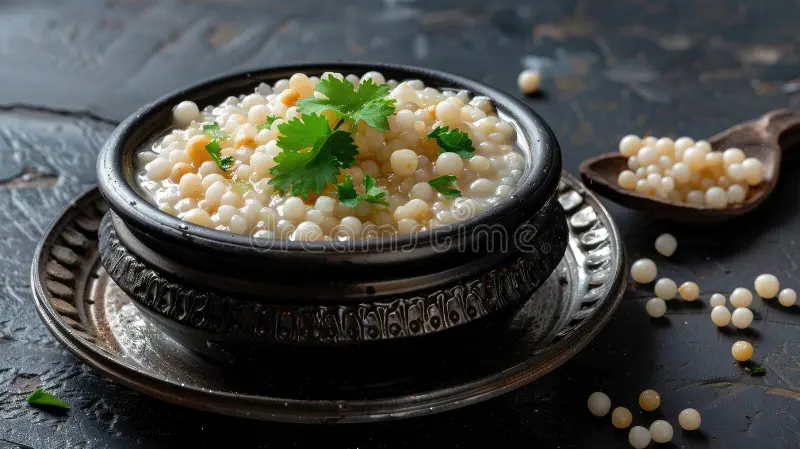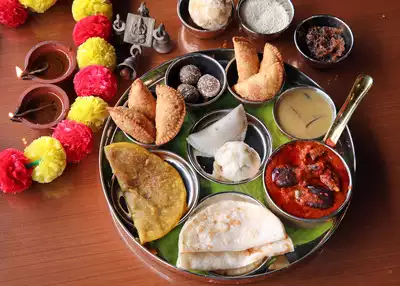
Ganesh Chaturthi celebrates the birth of Lord Ganesha, the beloved elephant-headed god, with great joy in India. Devotees, especially in Maharashtra, Goa, Karnataka, and Andhra Pradesh, celebrate with devotion and enthusiasm. Fasting is a key part of this festival and involves following specific food rules. Observing fasting during Ganesh Chaturthi purifies both the mind and body for devotees. Here are essential food rules to follow during Ganesh Chaturthi fasting.
1. Avoid Non-Vegetarian Food
During Ganesh Chaturthi, devotees must avoid all non-vegetarian foods, including meat, fish, poultry, and eggs. Lord Ganesha represents purity and wisdom, making non-vegetarian food unsuitable during worship. Devotees should maintain a strictly vegetarian diet during the festival, especially on fasting days.
2. Steer Clear of Onion and Garlic
Devotees typically avoid onion and garlic during fasting and religious festivals due to their stimulating properties. These ingredients can increase body heat and energy, which contradicts the calmness sought during fasting. Instead, devotees can use spices like cumin, ginger, and coriander to enhance flavors.
3. Embrace Sattvic Foods
Sattvic foods are pure and wholesome, promoting a calming effect on the mind and body during fasting. Common sattvic ingredients include fresh fruits, vegetables, milk, yogurt, nuts, seeds, and whole grains like rice and wheat. Simple, unprocessed foods help maintain fasting sanctity and keep the body energized.
4. Choose Specific Grains and Flours
Certain grains and flours are avoided during fasting, while others are accepted and recommended. Wheat flour and rice are typically avoided, while buckwheat, amaranth, and water chestnut flours are used instead. These flours create fasting-friendly dishes like puris, pancakes, and rotis.
5. Replace Regular Salt with Sendha Namak
Devotees should replace regular table salt with sendha namak, or rock salt, during fasting. Sendha namak is considered pure and commonly used in religious rituals and fasting. It is less processed and helps maintain electrolyte balance, especially during fasting.
6. Avoid Processed and Packaged Foods
Fasting during Ganesh Chaturthi also means avoiding processed and packaged foods filled with additives. Devotees should prefer home-cooked meals made with fresh, natural ingredients instead. This aligns with a sattvic diet and ensures spiritually nourishing food.
7. Consume Sweets and Offerings in Moderation
Sweets, especially modak, are significant in Ganesh Chaturthi celebrations, but devotees should consume them in moderation. Traditional sweets are often made with fasting-friendly ingredients like jaggery, coconut, and nuts. Enjoying these sweets mindfully maintains the spiritual focus of the fast.
8. Drink Plenty of Water and Fluids
Staying hydrated is crucial during fasting, especially for long periods. Devotees should drink plenty of water, fresh fruit juices, and milk to stay hydrated. Coconut water is also popular as it refreshes and replenishes electrolytes during fasting.
Conclusion
Fasting during Ganesh Chaturthi involves adopting a disciplined and mindful eating approach for devotees. Following these food rules helps devotees purify their minds and bodies during worship. By avoiding non-vegetarian foods and embracing sattvic meals, devotees create a stronger spiritual connection. As you celebrate Ganesh Chaturthi, adhering to these fasting rules enhances your spiritual experience and keeps your heart and mind pure.


